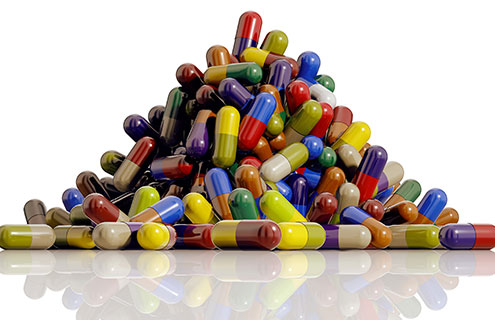BNY Mellon has seen significant depository receipt activity in the pharmacutical and biotech sector in the fist six months of 2015, with the industry accounting for 67 percent of capital raised in this way.
As of June 30 2015, BNY Mellon facilitated 21 depository receipts offerings, raising a total of $3.8 billion. Of these, 14 were from the bio-pharma sector, raising just under $1.3 billion.
Pharmaceutical and biotech firms accounted for more new depository receipt programmes in June than any other sector – of 34 new programmes, 10 were from this sector. BNY Mellon was depository for 24 of the programmes, or 70 percent.
Of all healthcare, biotech and pharmaceutical companies that have raised capital through depository receipts over the last three years, BNY Mellon has been depository for more than half of them.
The volume of depository receipts traded reached 81.6, an 8.6 percent increase compared to the same period last year, while the value increased by 4.9 percent to reach a total of $1.57 trillion. This represents the highest volume and value of depository receipts traded since 2011.
BNY Mellon’s capital raised from depository receipts dipped slightly compared to the same period in 2014. Last year, 41 capital-raising transactions totalled $9.1 billion, and this year 21 offering raised $3.8 billion, and 18 of these were listed on US exchanges.
The total level of global investment in depository receipts remained fairly stable, however, at about $825 billion.
Denmark, Russia and Japan were the best performing depository receipts country indices, seeing increases of 20.6 percent, 19.6 percent and 14 percent, respectively.
Christopher Kearns, CEO of BNY Mellon's Depositary Receipts business, said: "Bio-pharma companies, especially those in Western Europe, have been quite active in choosing depositary receipts as a means to raise capital and build awareness with US investors and the analyst community.”
“Depository receipts have been a conduit connecting many of these smaller, innovative firms with a wider investment community worldwide.”
He added: “While investors these first six months weathered market volatility as well as concerns such as the Greek debt crisis and growth rates in China, depository receipt trading numbers rose to their highest levels in four years. The continued enthusiasm for depositary receipt listings suggests that global investors recognise how DRs can help diversify their portfolios to suit a variety of market conditions.”
The first half of 2015 also saw two firsts for the industry and BNY Mellon.
Edita Food Industries S.A.E. used BNY Mellon for its listing on the London Stock Exchange (LSE), creating the first global depository receipt capital raised from Egypt since 2008.
BNY Mellon was also the depository for Fondul Proprietatea S.A., a joint stock company operating as a closed-end investment fund in Romania, which became the first ever closed-end fund to list on the LSE’s Specialist Fund Market in depository receipt form.
Generally, these depository receipts represent the shares and trades of non-US traditional and over-the-counter markets and stock exchanges around the world. Globally, there are more than 3,650 depository receipt programmes available.



